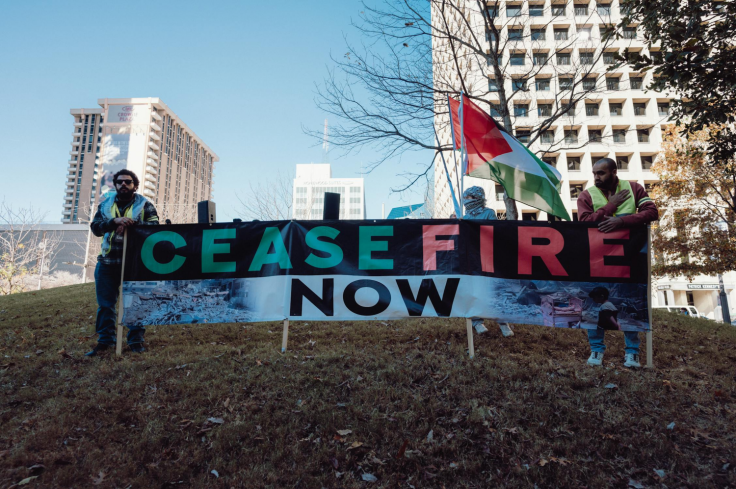College campuses across the United States have become battlegrounds over the Israel-Gaza conflict, with pro-Palestinian encampments springing up to demand institutions sever financial ties with Israel.
In response, college presidents have employed various strategies, ranging from ignoring the protests to negotiating peaceful dismantlements or involving law enforcement. Recently, some presidents who chose negotiation are facing backlash, accused of excusing antisemitic rhetoric and failing to enforce campus policies adequately.

Negotiation Tactics Under Fire
The most notable case involves Ming-Tung "Mike" Lee, the now-retired president of Sonoma State University. Lee reached an agreement with protest organizers that included commitments to disclose vendor contracts, pursue divestment strategies, and impose an academic boycott of Israel. In return, the demonstrators ended their nearly three-week-long encampment. However, this decision, made without the California State University system's approval, led to his suspension and eventual retirement.
In a public statement, Mildred García, the CSU system chancellor, condemned Lee's actions as insubordinate, stressing that his agreement with the protesters had marginalized other members of the university community. This incident exemplifies the risks associated with negotiating with activists. Critics argue that such agreements can appear to validate the protesters' views, including antisemitic sentiments, and undermine the authority of campus regulations.
Political Repercussions and Public Shaming
Elsewhere, similar negotiation tactics have drawn ire from political leaders and public figures. After the University of Wisconsin at Milwaukee Chancellor Mark A. Mone announced a deal to end an encampment on campus, system president Jay O. Rothman expressed his disappointment on social media. Mone's agreement included calls for a ceasefire in Gaza, condemnation of bombings on universities, and waivers for citations issued to protesters. This move was met with sharp criticism, especially from those who felt it failed to hold protesters accountable for violating campus policies.
The backlash extends beyond university systems to the national political arena. The U.S. House Committee on Education and the Workforce has scheduled hearings where college presidents must explain their handling of these protests. Leaders from institutions like Northwestern University and Rutgers University are slated to testify about their decisions to negotiate with activists. This political scrutiny underscores the contentious nature of these protests and the balancing act college leaders must perform.
A Difficult Balancing Act for College Presidents
The decisions of college presidents to negotiate with pro-Palestinian protesters highlight the complex dynamics of campus leadership during times of political unrest. These leaders must navigate the fine line between maintaining campus order and addressing the concerns of diverse student populations. According to Jon Fansmith, senior vice president for government relations and national engagement at the American Council on Education, presidents must reconcile with the fact that they cannot satisfy all stakeholders. The decision to negotiate or involve law enforcement can have lasting repercussions on their careers and the trust of their campus communities.
Eddie R. Cole, a professor of education and history at UCLA, points out that political interference further complicates these decisions. While private institutions might seem insulated from political pressure, they still risk losing federal funding if found in violation of Title VI of the Civil Rights Act of 1964. The heightened political scrutiny blurs the lines between public and private institutions, making it increasingly difficult for academic leaders to act autonomously.
Large university systems like the California State University and the University of Wisconsin are particularly vulnerable to confusion over responsibility and authority. Decisions made by university officials can be second-guessed by system leaders, creating an environment where controversial or unpopular decisions are fraught with additional complications.
The response of college presidents to pro-Palestinian encampments reveals the intricate challenges of managing campus protests in a highly polarized political climate. Negotiating peaceful resolutions, while aimed at avoiding violence and disruption, can invite accusations of endorsing antisemitic rhetoric and failing to enforce campus rules. As lawmakers and political leaders intensify their scrutiny, college presidents find themselves in an increasingly difficult position, striving to balance the demands of their diverse constituencies while upholding the principles of their institutions.
© 2025 University Herald, All rights reserved. Do not reproduce without permission.








